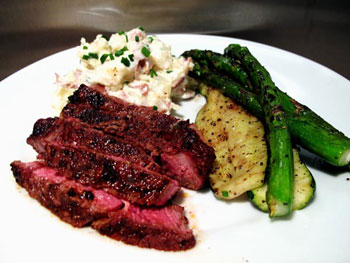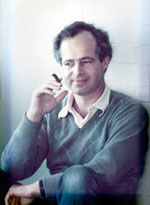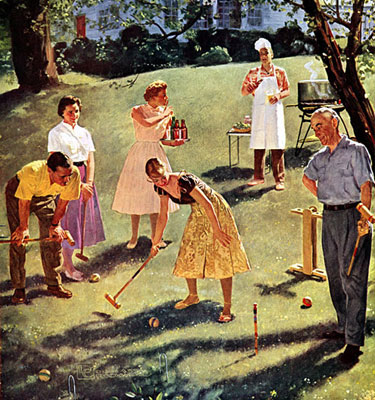 My father got me laid – twice. I’ll get to the food part in a minute.
My father got me laid – twice. I’ll get to the food part in a minute.
The first was a cute, spunky doctor who worked with him in his Radiology department in a VA Hospital on Long Island. She told me she was in Los Angeles and my father had told her to call me. She added, laughing, ”Like for a good time.”
"Come on up", I said, "I’m in Benedict Canyon. I’ll make you dinner." We bonded on my living room couch. Later, in the early hours of the morning I thought, “Gee, thanks, Dad. A nice present. And, it was my first doctor.”
The food. Growing up in a tiny town in upstate New York there weren’t any restaurants, just a luncheonette where if you asked for an egg salad sandwich the owner began by boiling an egg. The River Tavern Bar and Grill had a bar and no grill but in the summer you could get a pizza pie and in the winter they would defrost one for you.


 At six years old, I sat down after Sunday morning cartoons and wrote my very first story. The illustrations were nothing to speak of, but the premise went something like this:
At six years old, I sat down after Sunday morning cartoons and wrote my very first story. The illustrations were nothing to speak of, but the premise went something like this:
